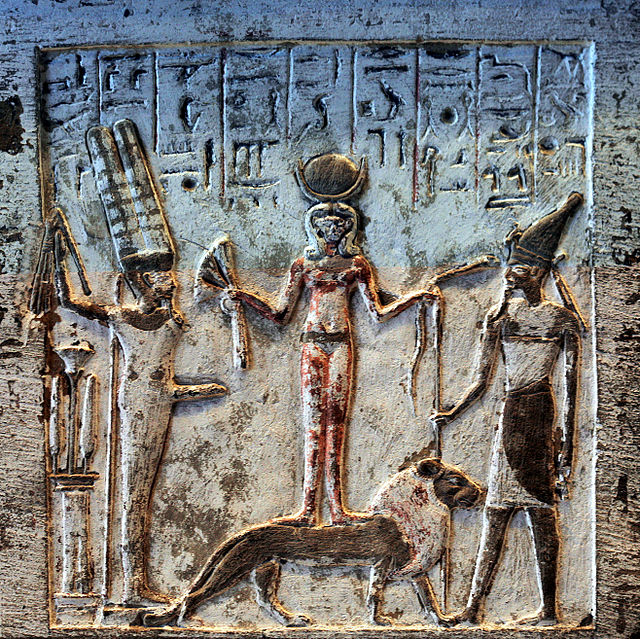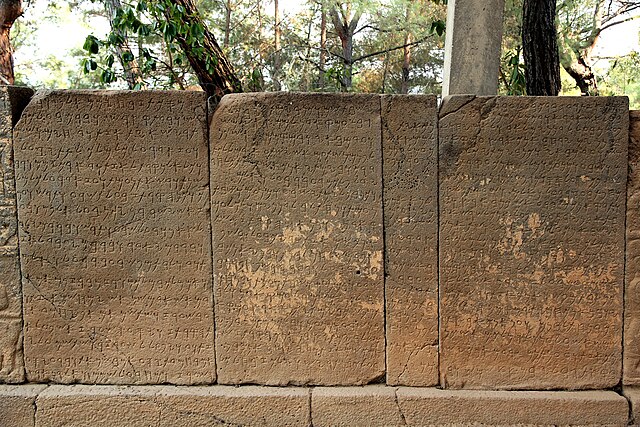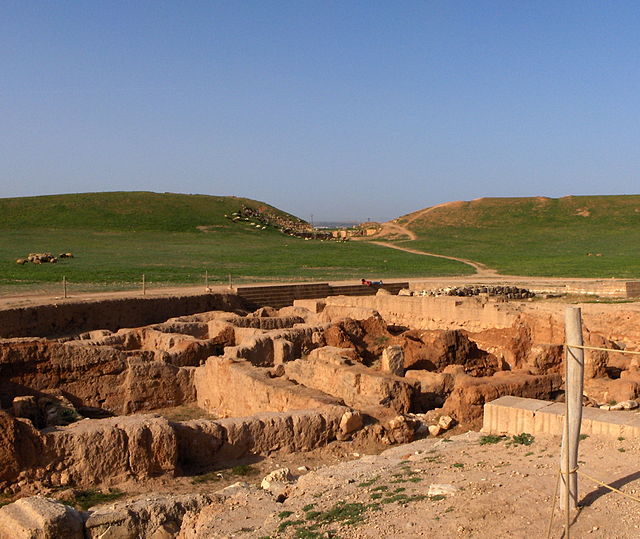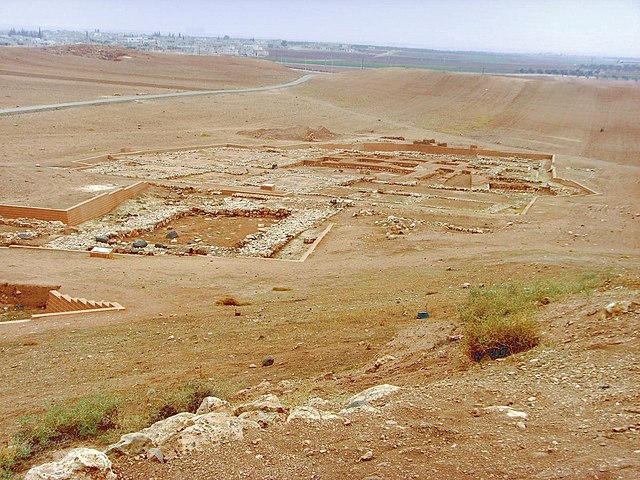Resheph was a god associated with war and plague, originally worshiped in Ebla in the third millennium BCE. He was one of the main members of the local pantheon, and was worshiped in numerous hypostases, some of which were associated with other nearby settlements, such as Tunip. He was associated with the goddess Adamma, who was his spouse in Eblaite tradition. Eblaites considered him and the Mesopotamian god Nergal to be equivalents, most likely based on their shared role as war deities.
The royal palace in Ebla.
An Egyptian depiction of Resheph as a "menacing god" brandishing a weapon and holding a shield. Metropolitan Museum of Art.
Egyptian limestone stele depicting Qetesh standing on a lion and wearing the headdress of Hathor, flanked by Min (left) and Resheph (right)
The Karatepe bilingual.
Ebla was one of the earliest kingdoms in Syria. Its remains constitute a tell located about 55 km (34 mi) southwest of Aleppo near the village of Mardikh. Ebla was an important center throughout the 3rd millennium BC and in the first half of the 2nd millennium BC. Its discovery proved the Levant was a center of ancient, centralized civilization equal to Egypt and Mesopotamia and ruled out the view that the latter two were the only important centers in the Near East during the Early Bronze Age. The first Eblaite kingdom has been described as the first recorded world power.
Ruins of the outer wall and the "Damascus Gate"
Royal palace "G"
Akkadian soldier of Naram-Sin, with helmet and long sword, on the Nasiriyah stele. He carries a metal vessel of Anatolian type. From Mesopotamia, Iraq, c. 2300 BC. Iraq Museum.
Palace "P5"







